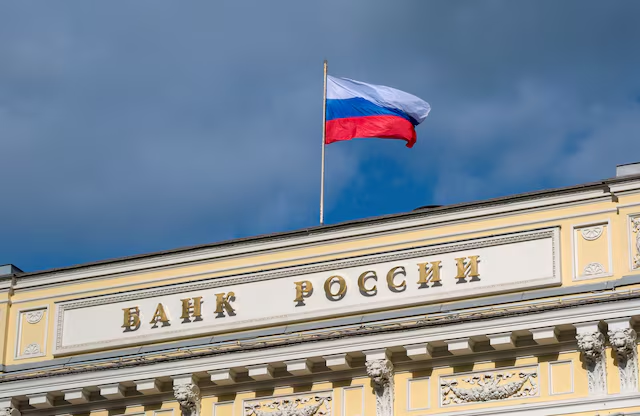The Russian central bank decided to keep its key interest rate at 21% amid a mix of declining inflation and emerging risks to the economy due to global economic challenges, particularly the ongoing trade tensions triggered by U.S. tariffs. While Russia has not been directly impacted by the U.S. tariffs on other countries, it is bracing for a prolonged period of lower oil prices, its main export, which is expected to negatively affect budget revenues. The central bank warned that further slowdowns in global economic growth and oil prices, especially if trade tensions escalate, could lead to proinflationary effects through fluctuations in the rouble exchange rate.
Governor Elvira Nabiullina, who has previously described the trade wars as a “tectonic shift,” emphasized that the global economic changes were becoming a significant inflationary factor. She explained that one of the main impacts of these tariff wars on the Russian economy would be a decrease in the prices of key export goods, particularly oil. Lower oil prices will reduce foreign currency revenues for Russian oil exporters, affecting the rouble as it is converted into domestic currency for tax payments. This, in turn, will limit the supply of foreign currency, weakening the rouble and contributing to rising domestic prices.
Despite these challenges, the central bank noted that inflationary pressures were continuing to decline, although they remained high. The regulator’s inflation forecast for 2025 is set at 7.0-8.0%, with expectations for inflation to return to its target of 4.0% by 2026. The central bank also predicted that inflation would begin a sustainable decline by May, following a peak in the fourth quarter of 2024, with a temporary increase expected in July due to a rise in utility tariffs.
The rouble’s recent strengthening, which has surged by 37% against the dollar this year, has been seen as more sustainable, though the exchange rate remains sensitive to developments in Russia-U.S. relations, particularly regarding the ongoing conflict in Ukraine. The central bank also left room for future rate hikes, expecting the average key rate in 2025 to be between 19.5% and 21.5%.
Nabiullina supported the Finance Ministry’s proposal to save more oil revenues in a reserve fund to cushion against global economic turbulence and help reduce inflation. Despite criticism from business leaders over the central bank’s interest rate policy, Nabiullina, who enjoys the backing of President Vladimir Putin, is expected to remain in her role until her term ends in 2027.
The central bank also reported slower economic activity in the first quarter of 2025 compared to the previous quarter and maintained its growth forecast for 2025 at 1-2%, below the government’s 2.5% estimate.
READ MORE:
